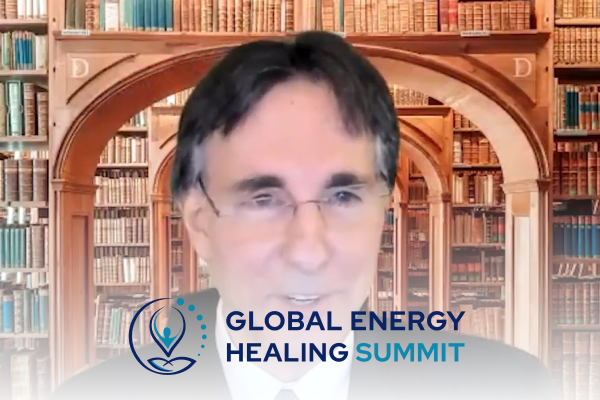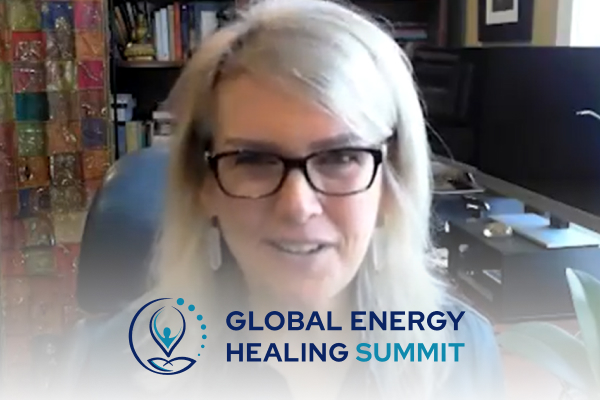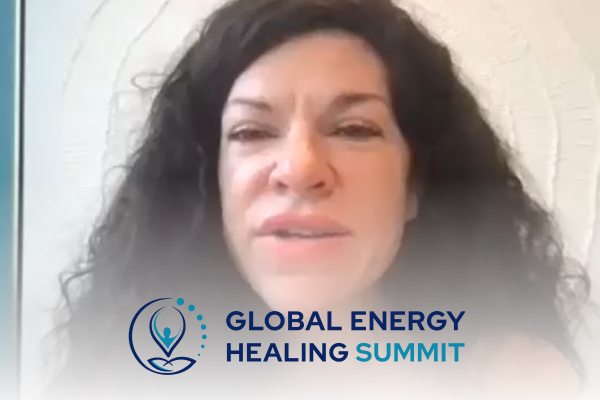Dr. John Demartini
Well, over now.
Tom McCarthy
Yeah, over 40 books. “The Breakthrough Experience” was a big best seller, and then recently his book around values. So John, welcome and thank you for participating in our summit here.
Dr. John Demartini
Well, thank you for having me, I appreciate it. Thank you for the intro.
Tom McCarthy
Yeah, and so we were talking a little bit about values right before we got on and the importance of being congruent with your values. People are coming here to learn about how energy impacts them and how they can create more energy to have healthier lives. Talk about values and energy because you told me a couple interesting things earlier.
Dr. John Demartini
Great, thank you for the question. Every human being, regardless of age, gender, or culture lives moment by moment by a set of priorities, a set of values, a hierarchy of values, things that are most to least important in their life. Whatever’s highest on their value, they are spontaneously inspired from within, intrinsically to fulfill, but as you go progressively down the list of priorities or values, they require greater degrees of extrinsic motivation to get them to do. So they tend to procrastinate, hesitate, and frustrate on the things that are low on the values and they got like a brake on. And on the top value, the highest value, particularly, they’re fluent, they’re congruent, and they’re spontaneously inspired, intrinsically driven to go and act.
Whenever an individual lives consciously, congruently, according to their highest value, prioritizing their life, filling their day with the highest priority actions they can do that inspire them spontaneously, where they’re disciplined, reliable and focused, they spontaneously raise their energy level because now instead of having entropy and resistance, they have negentropy, which life physics. Not only do they have energy, but they have what we could call healing consciousness because every biological organism is striving to go from entropy to negentropy, from disorder to order.
And anybody who can exemplify that state magnetizes people to them because they’re biologically driven to be around order. So if we don’t fill our day with high priority actions that inspire us and delegate lower priority distractions that don’t, we won’t maximize our potential for healing consciousness and energy, and we’ll end up having the disorder instead of the order. So priorities and values are inseparable from the energy-healing consciousness that’s involved in bringing order to people’s lives.
Tom McCarthy
So would it be fair to say… Great description, thank you. Would it be fair to say that people who have illness probably are not living their life in a way where they’re focused on their highest priorities or values and that’s creating some sort of stress and the illness might even be a signal, like, get your life in order? I mean, what’s going on here?
Dr. John Demartini
What you just said is profoundly true. Let me develop that if I could.
Tom McCarthy
Yeah, yeah.
Dr. John Demartini
Whenever you live consciously according to what you value most, which Aristotle called the “telos,” the end in mind, and the teleology was a study of meaning and purpose so that highest value is the most meaningful, the most purposeful, most inspiring, most fulfilling thing one can do, when you live according to that, blood glucose and oxygen, according to functional MRI scans, flood into the forebrain, particularly in the anterior prefrontal cortex, the medial prefrontal cortex, which is involved in inspired vision, strategic planning, executing your plans and self-governance, the transmitters, GABA, inhibitory, and glutamate, which is excitatory transmitter, from that area of the brain, go down through nerve fibers down into the amygdala, which is a desire center where we tend to want to avoid predator and seek prey, avoid challenge and seek ease and calms down and dampens the volatility of our emotions that distract us and take the lateralization of our autonomic nervous system and bring it back into poise where we maximize heart rate variability and therefore resilience adaptability induced stress, not distress.
So by living by our highest priorities, we automatically calm down the pertubations of our external world that we have subjectively biased our interpretations of the world in, which we call distress, and calm it down and neutralize it, to maximize our focused attention. And so our physiology is providing autonomic epigenetic symptoms as a guide back to authenticity ’cause our highest value is our most authentic self. Our ontologic identity revolves around your highest value. Our epistemological knowing revolves around it and our teleological purpose is literally an expression of what we value most. So the symptoms in our body are feedback mechanisms that guide us back to authenticity, where we maximize disorder into order and create our greatness and our potential for achievement and automatically it helps us wake up our leadership capacities, expand our space and time horizons, allow us to be more objective not subjectively biased and allow us to maximize our potential as a human being.
So the symptoms are not our enemies, the symptoms are a feedback mechanism guiding us to authenticity. And our symptoms are not just physiological symptoms, they’re psychological feedbacks. If we’re infatuated with something, we’re conscious of the upsides and unconscious of the downsides. If we’re resentful to something, we’re conscious of the downsides, unconscious to the upside. When we have impulses of our amygdala, we’re avoiding the thing we’re resenting and seeking the thing we’re infatuated with, and we’re fooled by it. As the Buddha says, “the desire for that which is unobtainable and the desire to avoid that which is unavoidable is a source of human suffering.” But the moment we let our intuition reveal what we’re unconscious of and transcends our ignorance, our intuition brings us back into authenticity where we’re objective, where we have reflective awareness, and we’re not putting people on pedestals with infatuations or pits with resentments, we’re putting them in our heart.
And when we actually have a reflective awareness and we’re not too proud or too humble to admit what we see in others in silence, we awaken love, we wake the gratitude. The medial prefrontal cortex is a center for gratitude, which is a balanced homeostasis of the neurotransmitters, and it allows us to say things with grace, and grace and love are two of the most powerful healers on the planet. So our intuition is guiding us back to authenticity, our physiology is guiding us to authenticity, and the second we get proud and cocky, we get sociological feedback to humble us, or if we get kinda beat ourselves up, we get lifted by people to get us back into authenticity. So to maximize our potential, maximize our healing, maximize our energy, literally the universe within us introspectively and around us extrospectively is guiding us to that most authentic state.
And so that’s where we actually have not only healing and wellness… Wellness just means we, you and I are reflections and I’m not above or below you, and illness is I, I’m separating deflectively from you, what I see in you, I don’t see in me. And illness is a sign that we’re not being authentic, and wellness is a sign that we’re being authentic. So yeah, our physiology is literally a magnificent feedback mechanism if it’s properly interpreted and not skewed by allopathic viewpoints that your need to get rid of your symptoms. Your symptoms are your friends if they’re properly interpreted.
Tom McCarthy
Yeah, yeah well, that’s awesome. I love that way of thinking about it too. People are so afraid of illnesses and disease and it is scary for most people because when they look at the internet and all the drug commercials on TV trying to scare the heck out of you just so they can sell you some drugs, but symptoms are a friend. They’re trying to guide you to a place that you’re not living in right now. That’s why it’s showing up, and it’s trying to keep you from going off the end of the cliff. I love that, that’s awesome.
Dr. John Demartini
Yeah, I’d like to share something.
Tom McCarthy
Yeah.
Dr. John Demartini
I had a gentleman that came to me one time, patient, and he goes, “Man, my stomach is just killing me and I’ve got indigestion and bloat and cramps, a lot of wind and I’ve got snuffy nose and I’m having difficulty breathing,” and he just listed off these symptoms.
Tom McCarthy
Yeah.
Dr. John Demartini
And he said, “You know, if I went to my medical doctor, I know what he would do. He would give me an antiflatulent, an antiacid.”
Tom McCarthy
Yeah.
Dr. John Demartini
“Antihistamine.”
Tom McCarthy
Yeah.
Dr. John Demartini
“An antiviral and an analgesic for the pain and the headache.” And I said, “But you know better. You intuitively know better. So when did it start? It started this morning when I woke up.” So, “So what did you do last night? “I pigged out. I just pigged out.”
Tom McCarthy
Pigged out, yeah, yeah.
Dr. John Demartini
“I ate more food. I couldn’t even breathe when I went to bed last night.”
Tom McCarthy
Yeah.
Dr. John Demartini
And I said, “So your body is creating symptoms to let you know to detox the body. It’s trying to guide you. If you go get rid of all those symptoms with all those pills, which are not curative, they’re palliative, if you do that, you aren’t gonna learn the lesson what your body’s trying to guide you to do and you’ll be foolish and continue to do that and think you’ll take a pill and get rid of it.” He says, “I know, that’s why I came to see you.” And I said, “Well, good, because your body is an educational feedback system and it’s guiding you to act wisely, moderately, with rhythm and consistency, not erratic, impulsive.”
Tom McCarthy
Yeah.
Dr. John Demartini
And so our body is a gift and it’s a great feedback system. I think the wisdom of the body Walter Cannon and Claude Bernard, known for their wisdom on homeostasis, did some magnificent work in “The Wisdom of the Body.” If people haven’t read that, it’s worth reading, and it talks about homeostasis and allostasis and how our body has got intricate, unbelievable amounts of intricate feedback systems to try to bring homeostasis from the perturbations of society in the world. And if we know what those perturbations and how they work, we will have applied physiology work on our behalf and we’ll realize that our body’s guiding us and we just haven’t been trained on how to interpret it.
Tom McCarthy
Yeah, so I hope everybody’s hearing this because so few people on the planet understand what you’re talking about or even have heard what you’re talking about. We’ve been so trained, particularly in Western society, you’re sick, take a pill that will cure you. It doesn’t, just like you said, it’s a symptom. There’s a cause underneath that that is what really needs to be taken care of and people are just treating symptoms. And one thing you said, and I want everyone to understand this too, so you talked a lot about authenticity. Is authenticity when we are living our values, or how do you define that word authenticity? How can we get people clarity on that?
Dr. John Demartini
Okay. So when we meet somebody, let’s say we walk in a mall and we see somebody that we think is more intelligent than us and we project our values onto them and through the filtering of our values, we interpret them as being more intelligent. We will then not even realize that we actually will be minimizing ourselves relative to somebody that we exaggerate. So anytime we exaggerate a capacity of another individual, we tend to minimize ourself in relationship to it and this can create a dysmorphia. If you’re a beautiful woman and you see a woman that’s got thicker hair than you, you’ll immediately minimize your perception of your own hair, or if they have more beautiful shape, you’ll minimize it. And this is a dysmorphia, but dysmorphias are not limited to physical appearances.
Dysmorphias, in a sense, are about anything that we exaggerate in other human beings. So if we exaggerate their intelligence and minimize our own, exaggerate their achievements and minimize our own and exaggerate their wealth and minimize our own, or their stability in their relationship, or their social influence, or their physical beauty, or their spiritual awareness, anytime we put somebody on a pedestal and infatuate with them, we’re going to minimize ourselves. And that minimization is not who we are. It’s a facade, it’s a persona, it’s a mask that we’re wearing of intimidation, But we also could walk in the mall and look at somebody over, a dummy, and think of ourselves greater than, and we can look at them as though they’re a failure and exaggerate our success and do the same thing around those seven areas of life and if we exaggerate ourselves and we put ourselves in pride, we’re exaggerating ourselves, we’re not being ourselves.
If we inflate or deflate ourselves, exaggerate or minimize ourselves, puff ourselves up or deflate and go into exaggerate or minimize modes, those are inauthentic states. So anytime we judge another individual or compare ourselves to another individual, we automatically lose our authenticity. We’re not loving and appreciating with reflective awareness. Now when we live in our highest values, we are most objective. Our pulvinar nuclei in our thalamus is a gating filtering mechanism that takes and filters our infinite reality, and allows us to extract out of our world the things that help us fulfill what’s most valuable.
So when we actually perceive something and we’re living in our highest values, we have the highest probability of objectivity. And objectivity means neutral-minded, non-partial, non-subjective and bias mindedness. So the second we live by our highest values, we’re able to see things in a more balanced perspective That’s why it helps us in homeostasis. But the second we’re not living in our highest values and we’re exaggerating somebody, minimizing ourselves, injecting their values, trying to imitate them, trying to be like them, instead of being ourselves, we just lost our authenticity and our blood glucose and oxygen goes into our amygdala where we go into survival mode and we now look for fantasies and we end up causing perturbations in our physiology which create symptoms to let us know that we’re not being authentic.
Tom McCarthy
Yeah, and that’s a huge struggle by most people. I know I even went through that as I was growing up. Grew up in a family, we didn’t have a lot of money. My father passed away when I was three years old, had two younger brothers and everybody looks like their life was better than mine. I was not as good as them. And so going through life early on, I was trying to play the game and trying to look like I was successful or fitting in. And then I realized, look, everybody’s got their own little path that they’re put on this planet to go through. Yours is different than mine. You’re gonna have some things that are super cool. I’m gonna have some things that are super cool. You’re gonna have some challenges, I’m gonna have some challenges. And it all evens out, we’re here with a specific purpose and being authentic to that, like, me not trying to be you-
Dr. John Demartini
That’s it.
Tom McCarthy
and you not trying to be me, you being okay with who I am and me being okay with you, who you are, I think-
Dr. John Demartini
That’s what Einstein-
Tom McCarthy
something that most people haven’t learned and it does cause lot-
Dr. John Demartini
That’s what Einstein said.
Tom McCarthy
of stress when you’re trying to be something you’re not. You’re holding onto like this fake shell around you. It eats up a lot of energy. I’ve felt that when I was in my 20s.
Dr. John Demartini
Yeah, Einstein said, “When you’re a cat expecting to swim like a fish, you’re gonna beat yourself up.”
Tom McCarthy
That’s right.
Dr. John Demartini
“A fish trying to climb a tree like a cat, you’re gonna beat yourself up.” But if you honor yourself as yourself-
Tom McCarthy
Yeah.
Dr. John Demartini
Whatever’s highest on a person’s values, an individual’s values, their identity revolves around it. So let’s say you’re a mother, 35 years old, you have three children. And your highest value is taking care of those three children. If you would ask them an ontological question, who are you, an essential being, who are you? I’m a mother. If you go and ask somebody who’s an entrepreneur and he’s running three businesses and he’s a serial entrepreneur and I asked him who are they? He goes, I’m a businessman, I’m an entrepreneur. He’s not gonna say, even though he may be a father, his highest value is entrepreneurship. He’s gonna say he’s an entrepreneur. He’s not gonna say, well, I’m a father.
He may say that second, but he’s not gonna say that first. It’s been shown and I’ve been studying values for 43 years and writing about it, the highest value your identity revolves around, so the moment you’re living congruently on that and delegating over priority things and sticking to the things and simplifying your life into the highest priority things, my case, it’s teaching and research, I can delegate everything else. I haven’t cooked since I was 24. I haven’t driven a car in 32 years. I don’t do anything low on my values ’cause you devalue yourself and you lower your energy and you dissipate your potential. But the second you live by priority and you’re being authentic, and you’re more objective, you’re seeing life in a reflective way.
You now have appreciation and love for life because you’re not having these judgements that are distracting you and putting on facades that are entropic. That’s entropic ’cause every time you store up a memory of having to put on a facade, that creates an arrow of time and that’s called entropy. And entropy is missing information because you’re too proud or too humble to admit what you see in others inside you so you have missing information about reality, and that’s entropy. And the reason it’s entropic is it creates symptoms to give you feedback to get you back on to what’s true and be mindful, see the whole picture and love people.
Tom McCarthy
Yeah. Hey, John, how does somebody find out what their values are? So people listening here, it sounds really good, I wanna be authentic, but how do they find out what their values are?
Dr. John Demartini
I started to studies of values 43 and a half years ago. And I asked a lot of people, it’s in the millions now over the years, about their values. And 99.999999999% will tell you social idealisms. They’ll tell you what they think it should be, what it ought to be. They’ll use imperatives. Colbury described-
Tom McCarthy
It’s not authentic right from there, right, you know?
Dr. John Demartini
Yeah. So they’ll say honesty and truth and integrity and all the-
Tom McCarthy
Yeah, yeah, yeah.
Dr. John Demartini
things people say.
Tom McCarthy
Is this what you wanna hear from me?
Dr. John Demartini
Yeah, I have no interest in the facades of the imperatives from the outside authorities, from mothers, fathers, preachers, teachers, traditions, conventions, and mores of a collective consciousness that you conform to. I’m not interested in that. I’m interested in what your life demonstrates ’cause every decision you make is based on what you believe will give you the greatest advantage over disadvantage at any one moment to what you value most. So knowing what that is crucial. So I created 13 value determinants that are on my website. People can go to the website for free, it’s complimentary.
Tom McCarthy
What’s the website, John?
Dr. John Demartini
DrDemartini.com, value determination. I promise you it’s private and it’ll take your 30 minutes of your time and it’s worth doing. Thousands of thousand of people did it.
Tom McCarthy
Yeah.
Dr. John Demartini
Well, I looked at, how do you fill your space? I’ve studied children right when they’ve been born all the way to the elderly. I guarantee you that your most intimate space, which is a foot and a half around you to four feet away which is your personal space in these proximities, if you look carefully, you’ll see that the people that may really value something, they keep whatever that is in their personal and intimate space and anything in the social and public spaces, that they push it away. So if you look at what’s really valuable to you, you’ll find it’s all within reach. So in my case, my computer’s in front of me, it’s within my reach pretty well most of the day. So if you look at what it is that you hold in your space, the top three most significant items that are repeatedly in your space most consistently and ask, what are they demonstrating being used for? What’s their primary utility? And you will then see it’s telling you what you value. Second one is time.
You find time, make time, spend time on things that are valuable to you. So take your day, take out your sleep, look at your life and what exactly are you spending the most time on, second most and third most, and be honest. Mine is I’m on my computer again teaching most of the day, or I’m researching most of the day. So if I look carefully, you’ll find a pattern that reiterate in how you fill your space, how you spend your time. The next one is what energizes you. Whenever you’re doing something high in your value, your energy goes up. Whenever you’re doing something low on your values, you’re drained. When you’re doing something you’re inspired by and you spontaneous love doing, you have more energy than when you end with it than when you started. But when you’re doing something that’s low on your values, you’re drained and you feel like, I got to do it, have to do it.
So anytime you hear imperative language, should, ought to, supposed to, got to, have to, must and need to, that’s a sign you’re in a drained state and that means it’s low on your value. But something you absolutely love doing, that’s inspiring to you, that can’t wait to do, or you spontaneously do, I’m looking for those things that your life demonstrates. The fourth one is money. You make money, find money and spend money on things that are valuable to you and you don’t wanna spend money on things that aren’t. So look at where most of your money’s going, second most and third most. Now you may say, well, it’s my house, I gotta have it. No, you don’t. You could be renting and you can be investing. I don’t even have a house. I have my ship, but I don’t have a house, like sold all the houses.
I invest. So where is your money going? That tells you what you value. And you’ll see a pattern in the space, the time, the energy and the resources on money. The next one is, where are you most ordered and organized? So whenever you have the highest degree of order and organization in your life, that’s what you value most because the things that aren’t important to you, you don’t get around and putting instruction. And the next one is, where are you most disciplined? Where do you spontaneously do things that nobody ever has to remind you to do? No external motivation is needed to get you to do it. Mine is teaching and researching. I do it every single day, I’ve been doing it for eight and a half years. I’m sure you probably do a lot of that too. So can you look at what you’re most disciplined at? And again, you’ll see a pattern.
If you’re not getting a similar pattern reiterated, somehow you’re lying to yourself and you’re writing down what you think it should be by expectations of society or what you hope it will be by your fantasies. I’m interested in what your life demonstrates. Then I look at what you think about, what you visualize and what you internally dialogue with yourself about most about how you want your life that is showing evidence in coming true. If there’s no evidence, you don’t put it down. If it is not what you want, you don’t put it down. So what are you thinking about, visualizing and talking to yourself internally about how you want your life that shows evidence coming true? I think about traveling the world and teaching. I visualize that outcome. I live that, I say to myself, I’m an international professional speaker traveling all over the world, inspiring millions of people. That’s the internal dialogue.
Then I look at what my external dialogue is. What do I say to people? What do I bring conversations to? How’s your business? How was your golf game? How’s your finances? How’s your kids? You keep wanting to bring your conversations and revolve them around what you value most. So look at what you converse with other people about most. Be objective. Don’t just be basing on your fantasy, but what’s your objectives, Joe? The next one is, what inspires you and brings tears to your eyes? There’s some things that are inspiring to you and the people that inspire you are reflections of what you value. I’m just stating Nobel prize winners and the great philosophers and the greatest leaders in the world for all these years for almost five decades. Those are the people that inspire me because it’s a reflection of what I wanna put out into the world. So look at what inspires you and brings tears of gratitude and chills up your spine when you really nail something ’cause that’s a moment of authenticity.
Tom McCarthy
Yeah.
Dr. John Demartini
And the question is, what is the most consistent and persistent goals that you’re pursuing that are coming true, that you’re achieving, those things that are most consistently dedicated to getting done, what are those three top ones? And the last one is, what do you spontaneously wanna read about, learn about, listen to about, watch on YouTube about? What do you wanna inculcate into your consciousness and learn about most in your life? And I assure you if you do that exercise and it’s done thoroughly and you hold people accountable to really answer and not put down social idealism-
Tom McCarthy
Right.
Dr. John Demartini
There’ll be a pattern that will just smack them right in the face and goes, bam, now I know what I’m committed to. And once they structure their life around that, once they prioritize their life according to that and practice delegating everything else away and do something that serves people so they’re remunerated doing that so their vacation and vocation are the same and they had the monies to delegate the rest, they’re on a path of inspiration and a purposeful life, and that is healing consciousness at it’s finest. That is being present. That’s where energy is infinite once you recognize that source.
Tom McCarthy
I love that. And so there’s an exercise they can do on your website to help identify their values?
Dr. John Demartini
Once you identify those answers, we look for what are the answers that reiterate in same or similar, or synonym form, which one do those repeat the most, second most and third most. And I’ve been doing this for
Tom McCarthy
Yup.
Dr. John Demartini
decades.
Tom McCarthy
Yeah.
Dr. John Demartini
I’ve used it in school systems, in governments. I’ve used it in corporates. I’ve used it in football teams, hiring people. I mean it’s used all over the world, but it’s a very powerful tool to do and I ask people to do it again now, and then a week from now, and a month from now, and every quarter ’cause your values can be tweaked. You might have a new baby that tweaks your values. You may have a new job or a company or something. So you have to keep up to date with it ’cause they’re tweaking and evolving over time.
Tom McCarthy
Yeah, no absolutely. Now it reminds me of when we had our daughter, we have two children, but our daughter when she was born, before that I’d come home, I’d go hit some golf balls, when I had an office. Now I work out of my office here at the house. And I’d watch a little ESPN. And then I remember walking in the house and seeing my daughter there and I was like, man, I really feel like watching ESPN, but I’ve got this baby and I really wanna spend time with her and I shifted. It shifted kind of what I focus on. Now I don’t even watch ESPN anymore, but you’re right, values can change. Hey, John, why don’t… I mean it makes total sense what you’re saying. We shouldn’t be authentic, it feels so much better, your energy’s flowing, you’re gonna be healthier, you’ll be more successful in what you do, why aren’t people doing it? Why are there so many people struggling to just be true to themselves?
Dr. John Demartini
That’s one of the greatest questions. Ernest Becker, Pulitzer Prize winner, “The Denial of Death,” the book, talked about the enormity or conformity of human beings, the individual hero or the collective hero. Most people compare themselves to other people. Ralph Waldo Emerson said, “Envy is ignorance and imitation is suicide.” The second we compare ourselves to others and put them on a pedestal and assume they have a better life and minimize ourselves by injecting their values and trying to be somebody we’re not, and trying to be, you might say is living a fantasy, ’cause we think that other people have a better life, they don’t. You said it wisely. There’s no better life out there. They have a different life, in their values, but if you try to live in their values, you have futility. And if you try to get other people to live in your values, you’re gonna have futility. You’re not here to put people on pedestals or pit. You’re here to put them in your heart.
And if you do, you free yourself up to be authentic. But the majority of people compare themselves to other people and are afraid of banishment, afraid of exile. It goes back to a very, very primitive survival instinct and impulse, that when we were out there in nature as nomadics, we didn’t do as well as when we joined together in groups and then specialties developed and then we became dependent on those specialties. And so what we’ve done is we’ve now instinctually, epigenetically and impulsively have developed this idea that if we are away from the group and not fit in, they must know we won’t survive. So that our survival instincts and impulses make us try to fit in instead of stand out. And yet we also have another part of us that wanna make a difference, but you can’t make a difference fitting in. You make a difference standing out.
So having the courage to live authentically is rare. It’s like the 1% -ers the most paid people. I always say that there’s a less than 1% that become the Nobel Prize winners, less than 1% that become the great Olympic medalist, less than 1% becomes the great spiritual leaders. The people who are willing to walk the path of an unborrowed vision, as Ayn Rand described, and go the path and beat the drum of a new drum and not fit in, those are the individuals that do extraordinary things and leave their legacies and marks in the world. But our impulse and instinct is frightened to not fit in and our mirror neurons want to copycat other people because if the majority of people say that they’re doing it it must be right, but we look carefully, the majority of people are not the wealthy ones. The majority of people are not the great leaders. So if you follow the herd, you’re not going to be heard.
Tom McCarthy
Yeah, “you follow the herd, you’re not going to be heard.”
Dr. John Demartini
And you’re gonna either following a culture or leaving the culture. I’d rather leave the culture.
Tom McCarthy
Yeah and the word outstanding means to stand out and every human being has the ability to stand out, but they give away that ability by looking at other people on social media, or the person in their 20s that just made a billion dollars and I’m 30, I don’t have a billion dollars yet. What’s wrong with me? There’s nothing wrong with you. Your path is not their path. And that person that just made a billion dollars, trust me, they’ve got lots of challenges that you don’t have. You just don’t see it because you see the money. I mean, who wants to be
Dr. John Demartini
Yeah.
Tom McCarthy
Bill Gates right now going through a divorce, or Jeff Bezos, some of the richest people on the planet, they have tremendous challenges. And that’s just in the relationships, but you’ve made money, I’ve made money, there’s a lot that goes with it. It’s not just peaches and cream. There’s all sorts of things that come along with it. So I think today though, John, the scary thing is everybody’s looking at social media, people are posting the absolute, most shined up versions of who they are on social media. They’re not telling you all the crap that they went through that day, or their insecurities and fears, but people are buying into this fairy tale. I remember when I worked with Tony Robbins. Like, people look at people that are successful and they see this fairytale existence that’s just not true. And so they try to live up to that instead of giving up why they’re really here on this planet. So I love what you’re talking about, yeah.
Dr. John Demartini
What’s interesting is I always called depression is a comparison of your current reality to a fantasy you’re addicted to.
Tom McCarthy
Yeah, yeah. “Fantasy you’re addicted to,” I like that.
Dr. John Demartini
Yeah, as long as you have this fantasy that they’re saints without sinners, they’re virtuous without vice, they’re heroes without villains, you have a delusion. And that’s what the amygdala does. The amygdala lives in false positives in order to assume something’s there even if it’s not to make sure to get the prey and to avoid the predator. So anytime we’re not living by our highest values and we get the amygdala going, we’re distorting our reality and we’re becoming vulnerable to a disempowered state and vulnerable to the herd because we have a brain offload to the herd to make decisions for us ’cause we’re afraid to make a decision ’cause we have uncertainties because of our subjective biases. But giving ourselves permission to live by priority liberates us from the bondage of the infatuation, and resentment, vicissitudes that disturb us and allows us to be core-centered and allows us to be magnificent instead of insignificant in our world.
And giving ourselves permission to be authentic according to what we value most is what my life’s about, is guiding people to do that and showing them how to do it. But what’s interesting is if you meet somebody that you put on a pedestal and the second you do, you ask this question, what specific trait, action, or inaction do I perceive this individual displaying or demonstrating that I admire most? And write it down. Don’t be vague, well, they’re just amazing. What specific trait, acts, inaction do you perceive this individual displaying or demonstrating that you admire most? Pin that down. Now go and ask the question to me and ask yourself. Go to a moment self where and when I perceive myself displaying or demonstrating that same, similar, or synonym behavior in my own life, and where was it, when was it, who was it too, and who perceived me that way? If you go and dig and reflect and introspect, you will discover you only admire things and other people that represent things that you actually do, but you’re too humble to admit.
Tom McCarthy
Yeah.
Dr. John Demartini
And the moment you go and reflect and identify where it is to the same degree, quantitatively and qualitatively, you will take them off the pedestal. You’ll put them in your heart. You will no longer get distracted by them and you’ll return back to your telos, your highest value, and liberate yourself from the illusion that they have a better life.
Tom McCarthy
Yeah, I love that. Hey, let’s talk about the amygdala really quick. So the amygdala activates the fight or flight response. When that’s activated, people really can’t heal, right? When they’re in a protective mode, it’s taking up so much energy that prevents healing. Is that correct?
Dr. John Demartini
Well, if you perceive with your perceptions imbalanced ratios of perceptions, see, if you have a completely balanced ratio of perception of whether something supports your highest value or challenge it, and it’s 50/50, they balance support and challenge, your forebrain comes on. The blood goes up there. To say that you perceive way more drawbacks than benefits or way more benefits than drawbacks, the desire center comes online. And now you seek it as if it’s prey, I wanna consume it, and seek it, like infatuation, or you wanna avoid it in predator. The fight or flight is the avoidance response.
Tom McCarthy
Okay.
Dr. John Demartini
The rest and digest and breed and feed is the other side, the parasympathetic response. Both of those responses through lateralization to the autonomics can create symptoms. Most people don’t realize that the parasympathetic can create symptoms too, not just the sympathetic. They think, oh, the parasympathetic is the default, that’s a good state, and the sympathetic’s the bad state, no. You can be infatuated with somebody and/or resent somebody and create symptoms and create illness. In fact, your subconscious mind stores all the impulses and instincts of infatuations and resentments that you stored in your life and they’re running you faster than your conscious state can do, causing these decisions to seek or avoid, just like a spider jumps at you, you run. You don’t have time to think. So as long as you’re in the amygdala, you’re not using the resources to bring homeostasis.
You’re perturbing the resources instead of stabilizing them. It’s your intuition that takes you out of that, and then your rational reasoning that takes you back into governance, and that puts you back once you ask the questions that balance out your perception. So if you’re having something you’re resenting, if you don’t ask, what’s the upsides to this, you’re gonna have it run you. If you’re infatuated, if you don’t ask, what’s the downside of this, it’s gonna run you. But if you ask questions that normalize and balances out the perceptions and get you back to your executive center, your self-govern yourself, you’re stable, and you bring wellness again. Wellness and energy automatically go together at that moment. Your mitochondria will express, literally express how well authentic you are. Your mitochondria maximize and literally create new mitochondria to the degree of authenticity. And even your telomeres will extend with telomerase if you live by your telencephalon, your frontal cortex. So when we have foresight instead of hindsight, we move forward in life instead of decay.
Tom McCarthy
So with the telomeres extending, that’s anti-aging, right?
Dr. John Demartini
Anti-aging, why? Because what they found is when people live by their highest value, their telos, and activate the telencephalon, their telomerase goes up. Why, because the space and time horizons expand ’cause every time you set a goal and you achieve it, you tend to expand to bigger goals. And so the space and time horizon start to grow. And as Seneca said, “You measure an individual by their most distant ends.” How big is space and time do they see in their minds? And if that grows, their telomeres will allow you to fulfill what you’re holding in your mind. Your thoughts become things and your innermost dominant thought becomes your outermost tangible reality. So if you actually think about what you’re going to do to contribute to the planet on a larger scale, your telomeres will grow to make sure you fulfill that objective.
Tom McCarthy
Yeah, I love it. Hey, let’s focus on delegation a little bit and we’ll probably maybe end with this. So I’m big on leverage and delegation. So I’m 100% on board with you and that’s made a huge difference for me and my health, my happiness, and the results I’m able to produce, but the average person’s gonna be watching this. And when I say average, that’s not a great description, but the person listening to this might be going, well, that’s fine. You can pay somebody to cook for you. You can pay somebody to drive you, but how do I function? I’ve got all this stuff being dumped on me. I’m a mom with three kids, four kids. How can I work this into my life? What do you say to that person?
Dr. John Demartini
Ah, great. I love that question. First of all, all of the choices you have around you is your choices. You chose to live beyond your means, put yourself under these stresses because of your values. Your heart values dictate your financial destiny. It does never cost money to hire and delegate properly. It costs money to hire somebody who’s not inspired by to do the job, not qualified to do the job, and you’re not going and doing what’s higher in priority that produces more when you delegate it. The purpose of delegation is to liberate you to do something more profoundly impactful and more productive and more generating of income than what you would be doing, doing the lower priority things. So you’re actually liberated to generate more income to actually have more delegations to free you up and doing what your core competence is about to live an authentic life by delegation.
So here’s some steps that people can do, an average, as you call an average. Sit down, get a piece of paper out, put five vertical lines in it, make six equal space columns. In the far left column, write down every single thing you’re doing in a day, every single thing you’re doing in a day, not generalities, accounting, the actual daily actions you’re doing in a day from the time you get up to the time you go to bed, personal and professional, what are you doing? How you spending moment by moment throughout your day, every moment of your day, how’s it being spent? What are the actions? Because just doing that alone will make you look at that and you’ll go, Ooh, boy, I’m majoring in minor stuff and minoring in major stuff, just by looking at it. In the second column, you write down how much money does that produce per hour, each of those actions. You may have 200 actions sitting there, 100 actions. How much does it produce per hour? You try to extrapolate that to the best of your ability, ’cause you’re gonna say, well, it doesn’t make any money. Okay, then put zero. Just know every moment you’re spending devaluing yourself like that, well, that’s your choice. You chose to spend your time doing something that devalues you.
Tom McCarthy
Yeah, hey, John, John, just with that one too, they could also be thinking about how much health does that generate or how much happiness does that generate ’cause-
Dr. John Demartini
I’m about to get there, so-
Tom McCarthy
Okay, good, good, good, yeah.
Dr. John Demartini
Okay. So the second one is how much is it producing? Because if you’re not serving people, there’s no income.
Tom McCarthy
Yeah.
Dr. John Demartini
So you have a humanitarian, philanthropic objective sitting inside you. If we don’t have that, we have this narcissistic side, it’s all about me, but the real truth is you got to have a balance between yourself and others in the world. That’s what wellness is. That’s where energy is. You don’t have fulfillment unless you’re making a contribution on the planet. Everybody who’s learned that knows that. So what is your producing? ‘Cause that’s a measure. That’s a metric measure of what service you’re providing people. The third column is how much meaning does it have? How much does it mean to you? That’s the narcissistic side. How much meaning on a 1 to 10 scale is that action? And you’ll discover going through there that you’re doing a lot of meaningless stuff and you’re also doing a lot of no productivity stuff. And you wonder why you’re weighed down and why you’re feeling burned out and why you’re feeling uninspired and why you feel you’re blaming the world out there, ’cause it’s a reflection of what you’re doing to yourself.
And the fourth column is how much would it cost to delegate that? If you hired somebody to do that job, how much would it cost you to delegate that? And I don’t mean just their salary, every cost: training cost, space utilization cost, parking cost. What would it take to hire somebody to do that job? And this is people that will do a greater job than you, not just some anybodys. This is somebody you can delegate and free it up and know that it’s being done because it’s highest on their values to do that job. That’s the screening process. Finding somebody that absolutely loves doing what you wanna delegate is freeing. You don’t wanna hire somebody just because you wanna hire them. You wanna hire somebody that’s absolutely inspired to do what you wanna delegate. Once you do that, you go to the next column, how much time you actually spending on each of those items? And that’s a real eye-opener. You’d be surprised. When I first did this at age 27, I had one staff member working for me. I had a little office. I was practicing as a doc, but I did this exercise after reading a book called “The Time Trap” by Alec Mackenzie. And he didn’t have this in there, but I summarized it and did this exercise that I created.
Tom McCarthy
Yeah.
Dr. John Demartini
And then the last column you write down, final prioritization. So what you’re doing is when you’re looking at the delegations of who you’re gonna delegate, you’re looking for where the biggest spreads are between what it produces per hour versus what it could cost per hour to get somebody to delegate, to extract surplus labor value out of it. So when I do a final prioritization in the sixth column, I then look at what exactly is the most important thing that produces the most, most meaningful thing, and then look at what I could do if I was to delegate it.
And I look at all the data and then I summarize it and prioritize it according to all those variables. And then I divide those into layers, and then a hire people to do the lowest one, hire people to do the next lowest one, et cetera. And in 18 months after doing that exercise from one doctor, I mean myself and one assistant, I had five doctors, 12 staff members, 5,000 square foot office and made 10 times the amount of income and was only doing what I love doing, which was teaching and doing the healing process, and everything else was delegated. So you liberate yourself and in 18 months, your life can change. That’s how quick it changed for me.
Tom McCarthy
I love it, and there’s things today with Amazon. You don’t have to go out to a store to buy something, even your groceries. So there’s little things that people that don’t have a practice or don’t have a big time job like you can still do to put time back in their day and to delegate it to Amazon, to have a driver pick it up and deliver it to you or elect… I still like driving cars, but we’ve had a fleet. We’ve had Teslas, we’ve had seven Teslas and I don’t have to go fill it up at the gas station ’cause that was one thing I hated doing. We just come home, you plug it in, it does it for you. We have services that’ll pick your cleaning up at your house and deliver it back. I hated going in to… So people need to think of even small things in their life that they can delegate too.
Dr. John Demartini
Well, anytime you’re doing things lower on your values, you devalue yourself and sows the world. And anytime you do higher values, you value yourself and sows the world. So if you wanna master your life and live a life of inspiration, that’s one path. If not, you’re gonna have a life of desperation. You can be a victim of your history, or you can be a master of your destiny. It’s all how you decide to live according to priority. And if you don’t prioritize your life, other people are gonna prioritize it for you. And if you don’t empower your life, other people are gonna overpower it. See, if you don’t empower yourself intellectually and decide what you’re gonna feed your mind, you’re automatically gonna be told what to think by other people. If you don’t empower yourself in business, you’re gonna be told what to do.
If you don’t empower yourself financially, you’ll be told what you’re worth. You don’t compare ourselves in relationship, you’re gonna be stuck doing, gofer jobs around the house by people. You don’t empower yourself socially, you’ll be told what you’re worth. You’re gonna have the fear of rejection and be told and fall for the misinformation in all the media. If you don’t empower yourself physically, you be told what drugs to take and what organs to remove. If you don’t empower yourself spiritually, you’ll probably fall for some dogmatic antiquated piece of idea. But if you give yourself permission to live by priority, you will lead the pack, not follow the pack. That’s as simple as that.
Tom McCarthy
Yeah, I love that, and I was gonna ask you, what’s the final thing you wanna say? That might’ve been it. Did you have any other just final wisdom that you wanna impart? If there’s one thing that people get out of this, what would you want it to be?
Dr. John Demartini
I want them to know that the magnificence of who they are is far greater than any fantasies they’ll ever impose on themselves. So instead of comparing yourself to others, compare your daily actions to your own highest values and how congruent you are with that will determine the energy, the healing potential, and the opportunities in your life, the associations in life, the experiences in life that you will be able to see is always on the way, instead of in the way. And you’ll be grateful for your life and gratitude and love are still the greatest healers on the planet.
Tom McCarthy
Yeah, hey, John, I love your wisdom. And even more than that, I loved your passions. 48 years after starting, you still have that passion for sharing it. And so I’m so grateful that you’ve been on this summit with us, and I encourage everybody to go to Dr. John Martini’s website. You’ve got the value exercise and I’m sure there’s all sorts of other great tools. And John, thank you so much for being with us. I really do appreciate this time.
Dr. John Demartini
No, thank you, it’s been a great conversation. Thank you for the opportunity, appreciate it.
Tom McCarthy
You bet.












